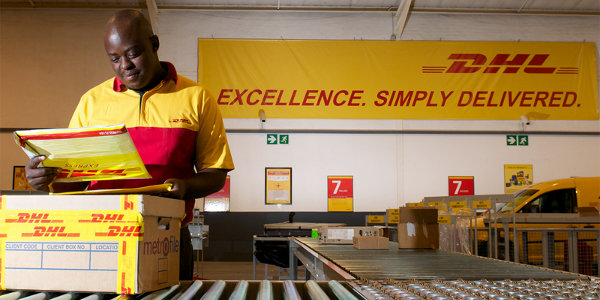
Delivered by DHL
DHL Express, the world’s leading international express services provider, has published research highlighting the significant growth opportunity for retailers and manufacturers with an international online product offering. The report – The 21st Century Spice Trade: A Guide to the Cross-Border E-Commerce Opportunity – looks in detail at the markets and products that offer the highest growth potential, the motivations and preferences of customers making international online purchases and the success factors for online retailers that wish to expand overseas. It focuses in particular on the opportunity for premium products and service offerings, with higher basket values accounting for a significantly higher proportion of orders in cross-border transactions.
The report reveals that cross-border e-commerce offers aggregate growth rates not available in most other retail markets. Cross-border retail volumes are predicted to increase at an annual average rate of 25% between 2015 and 2020 (from US$300bn to $900bn) – twice the pace of domestic e-commerce growth. Online retailers are also boosting sales by 10-15% on average simply by extending their offering to international customers. An additional boost comes from including a premium service offering retailers and manufacturers that incorporated a faster shipping option into their online stores grew 1.6 times faster on average than other players.
“Contrary to what many retailers think, cross-border shipping is actually simple and retailers in sub-Saharan Africa are perfectly positioned to take advantage of international opportunities. ‘Brand Africa’ is something that has increased exponentially in popularity in recent years and it’s time for retailers to remove the boundaries and open up their business to seamless international trade. Often, retailers choose not to promote their businesses internationally, and worse yet, will turn down international sales interests due to the misconception that it’s too difficult to manage and deliver,” says Hennie Heymans, CEO for DHL Express sub-Saharan Africa.
“Globally, our experience is that virtually every product category has the potential to upgrade to become premium, both by developing higher-quality luxury editions and by offering superior levels of service quality to meet the demands of less price-sensitive customers. The opportunity to ‘go global’ and ‘go premium’ is available to retailers in all markets and our global door-to-door time definite network is well-positioned to support retailers looking to develop a premium service offering or directly reach new international markets without the need to invest in distribution or warehousing. In sub-Saharan Africa, the opportunity for intra-Africa trade should not be ignored. ‘Going global’ does not only mean trading outside of the African continent, Africa is home to one of the world’s fastest-growing middle class, with an appetite for quality products and services. There are also a number of trade blocs in place to support intra-Africa trade growth and retailers should take advantage of this captive market.”
The report is based primarily on research and in-depth interviews conducted by a leading global management consultancy, as well as more than 1,800 responses to a proprietary exporter survey of retailers and manufacturers in six countries. It casts a light on the evolving face of e-commerce, with both supply and demand becoming more sophisticated manufacturers are increasingly taking advantage of e-commerce to move to direct retail models – bypassing the ‘middleman’ and offering their products online to the end customer – and expect to grow 30% faster in cross-border e-commerce than other retailer groups. Customers in many markets are also becoming more discerning, citing product availability and trust, as well as attractive offers, as the motivating factors for shopping with overseas online retailers.
The main challenges highlighted by consumers to cross-border purchases relate to logistics, trust, price and customer experience. At the same time, online retailers can take a number of relatively easy steps to identify, cultivate and service demand from abroad. The report noted that the e-commerce trend has given birth to a new eco-system of facilitators and off-the-shelf solutions (such as payment providers and programs that localise a website’s check-out experience for the visitor), helping retailers to adapt their offering to the digital world and to transact with customers in foreign markets. Global logistics partners can provide support in identifying the right trade-off between centralised and local warehousing and fulfillment, while fast, reliable and flexible delivery options can be an important tool in turning speculative interest into long-term customer loyalty.
Comments
Post a Comment